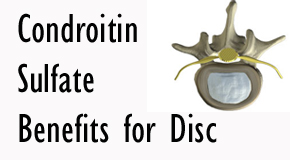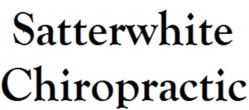Chondroitin Sulfate for Disc Health
Human cell engineering. It sounds rather like science fiction, but much is being explored today by some great minds that hope to help the human condition and alleviate pain. A worthy cause.
Now here we are going to look at the cells of the disc, the degenerated disc that causes so much pain for Oxford chiropractic patients. Satterwhite Chiropractic likely sees a higher percentage of back pain and neck pain patients as that’s what chiropractic draws, but since 1 in 3 people walk around with back pain, most [all of us|everyone]] in Oxford knows someone suffering with back pain. Satterwhite Chiropractic is here to help with chiropractic care that includes a nutritional approach to disc health, especially with the long-studied component, chondroitin sulfate.

Now, today, research grows in volume and recognition of chondroitin sulfate’s role in disc degeneration. As the disc degenerates, back pain sets in, sending many Oxford chiropractic patients in each of relief. One set of researchers found that non-degenerated nucleus pulposus cells have higher levels of chondroitin-4-sulfate in them. So they are working to increase chondroitin sulfate production to help degenerated discs’ nucleus pulposus. Pretty inventive! In this study, they found that they could increase the production by putting non-degenerated nucleus pulposus cells in an alginate culture. (1) That keeps it in the laboratory at the moment, but one day…
Another study that opens with the recognition that intervertebral disc degeneration occurs mainly in the nucleus pulposus and is the leading cause of low back pain describes work to create a hydrogel of chondroitin sulfate and CP (chitosan-poly[hydroxybuyrate-co-valerate] – You wanted to know what the CP was, didn’t you?) to help the production of chondrocyte-like cells for nucleus pulposus engineering! (2) Fascinating research…but until such engineering proves itself and becomes broadly available, there is supplemental chondroitin sulfate. (2)
So chondroitin sulfate can be taken orally or injected. Since knees have similar white fibrocartilage to the intervertebral disc, much research on the effect of CS is described in research done on knees. Oftentimes when chondroitin sulfate is used for knees, it is injected with good response. For spinal issues, oral administration is typical.
Chiropractic author Cox often cites literature on not only reversing disc degeneration but actually enhancing regeneration of degenerated discs with chondroitin sulfate and distraction manipulation. (3,4,5) Cox created a spinal nutritional formula called Discat Plus that incorporates chondroitin sulfate from a green lipped mussel called perna canaliculus to enhance any potential disc regeneration.
A double-blind randomized clinical trial – a top line research study – revealed that combined chondroitin sulfate and glucosamine does nearly the same as celecoxib for symptoms, function, and joint swelling in persons with symptomatic knee osteoarthritis at 6 months. (6) (Celecoxib may be better recognized by its brand name, Celebrex®, which many Oxford chiropractic patients often are taking for arthritis and its accompanying joint pain and swelling.) A bonus, our Oxford chiropractic patients: Chondroitin sulfate hampers inflammation and prevents atherosclerotic plaques in heart disease! (7) Back pain is inflammatory, too, which is a story for another time.
So please contact Satterwhite Chiropractic for back pain relief and be open to discussing nutritional approaches that may enhance your quality of life and reduce your Oxford back pain in the now while we all wait for research to bring new approaches to fruition!
